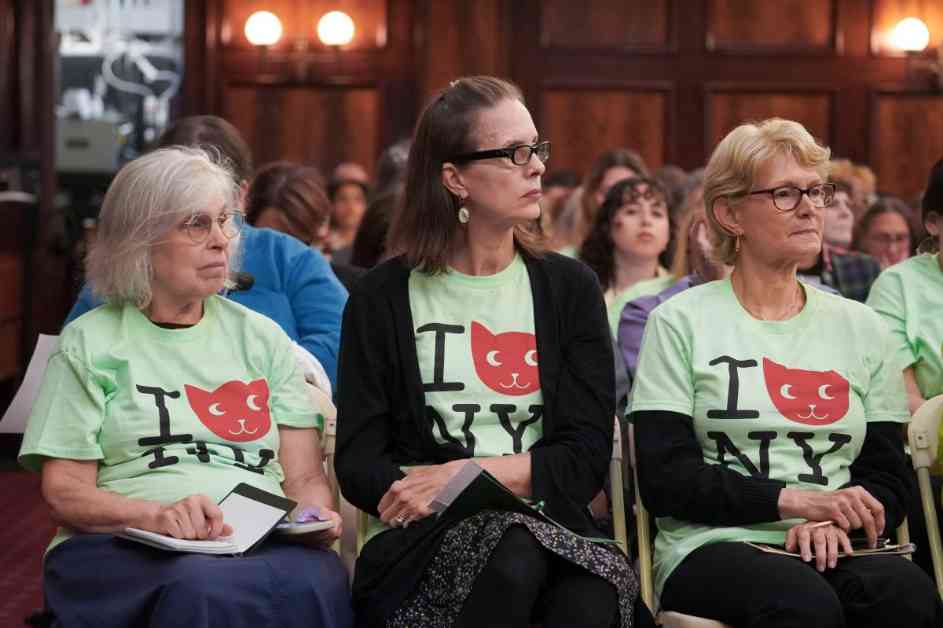Veterinarians, animal rescuers, and nonprofit leaders gathered at City Hall in New York City for a six-hour hearing on the state of animal welfare in the city. More than 100 advocates spoke out about the challenges faced by rescuers and shelters, calling for increased city funding to address issues such as overcrowded shelters, support for pet owners, and reducing the number of strays on city streets.
Advocates Highlight the Challenges
The testimony from the advocates painted a grim picture of the current state of animal welfare in New York City. Despite a surge in pet adoptions during the pandemic, numbers are now lagging, with increased intakes and owner surrenders. Lynn Schulman, the chair of the council’s health committee, pointed out that shelters are overwhelmed, and rescue organizations are struggling to keep up with the demand.
Compared to other large cities, New York City spends less money per capita on animal welfare, Schulman noted. She emphasized the need for adequate city resources to address the root causes of the issues rather than just applying temporary solutions.
The testimony began with Alexandra Silver, director of the Mayor’s Office of Animal Welfare, Risa Weinstock, CEO of Animal Care Centers of NYC, and Corinne Schiff, deputy commissioner of the health department’s Division of Environmental Health. These representatives highlighted the challenges they face in running the city’s animal welfare programs, despite some recent successes.
Financial Hardship as a Common Thread
Weinstock shared that the majority of animals taken in by ACC, a nonprofit that operates the city’s public, open-intake shelters, are strays or pets surrendered due to financial hardship. Job losses, housing instability, pet restrictions in housing, and the rising cost of pet care were identified as key factors contributing to the high intake numbers.
Stewart Mitchell, an animal rescuer from Brooklyn, shared his personal experience of struggling to cover a hefty vet bill for his sick cat. He stressed the importance of addressing financial barriers to veterinary care, as many pet owners face challenges in providing necessary medical treatment for their animals.
Advocates Push for Low-Cost Spay/Neuter Services
A lack of affordable spay and neuter services was highlighted as a significant contributor to the stray population and shelter overcrowding. Unaltered animals can lead to unwanted litters, further exacerbating the issue. Dr. LaCheryl Ball, director of surgery at Flatbush Vet, emphasized the need for increased support for spay/neuter programs to tackle the animal overpopulation crisis.
City officials acknowledged the importance of low-cost spay/neuter services but faced criticism for not fully utilizing the allocated budget for these programs. Advocates stressed the need for scaling up existing resources to meet the high demand for affordable veterinary care in the city.
Support for Individual Rescuers
Individual rescuers, like Sassee Walker, who operate on their own to care for animals in need, shared their struggles with funding vet care, traps, and food. Walker expressed her exhaustion and frustration with the lack of support, highlighting the need for more resources to assist those who dedicate their time and resources to animal rescue efforts.
Will Zweigart, founder of Flatbush Cats and Flatbush Vet, outlined the importance of community support and funding for clinics like Flatbush Vet to address the shelter crisis effectively. He called for the creation of a new fund to make spay/neuter services more accessible and urged the Department of Health to take meaningful action on these critical issues.
Moving Forward
Advocates and city officials alike recognize the pressing need to address the challenges facing animal welfare in New York City. From overcrowded shelters to financial barriers to veterinary care, there is a consensus on the importance of increased funding, support for low-cost spay/neuter services, and resources for individual rescuers.
As discussions continue on how to improve the state of animal welfare in the city, advocates are hopeful that meaningful changes will be implemented to ensure the well-being of animals and support those working tirelessly to care for them. The commitment to addressing the root causes of these issues and providing sustainable solutions is paramount in creating a more compassionate and humane city for both humans and animals alike.
